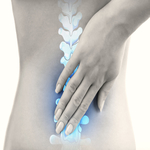People in recovery for addiction face a serious dilemma when it comes to pain. It practically goes without saying that the most effective treatments for pain are also the most addictive—as is evident by the prescription opioid epidemic occurring in America. Those in recovery for any form of mind altering substance need to be especially careful in the wake of an injury. It is more common than you might think for a relapse to occur after being prescribed opioid painkillers.
If your pain is so severe that you require prescription opioids, it is paramount that you are up front with the attending doctor regarding your history and with your sponsor about being on the pain meds. Failure to do so can have catastrophic outcomes, derailing your recovery or worse. If you are written a prescription, it is always considered a good idea to hand over the bottle to either a family member who is familiar with your past or your sponsor—especially if you are recovering from an opioid use disorder. They can dole out your meds to you as needed and be a second level of accountability.
If you are in fact a recovering opioid addict, maintaining your recovery should be the number one priority. While it is true some injuries are so painful that prescription opioids are warranted, other times pain can be managed without the use of drugs, such as oxycodone or hydrocodone. Talk to your doctor about alternative forms of pain management before you resort to opioids. In fact, a new study has shown that a non-drug approach which combines behavioral therapy and social support, could be a vital asset to those who are in recovery and combat the national opioid epidemic, ScienceDaily reports. It can also help people in treatment for opioid addiction who have chronic pain. The findings were published in the journal Addiction.
“These results highlight the need for addiction treatment programs to offer a multifaceted approach that doesn’t only address substance use but also the other factors that might be driving substance use, including pain,” said study lead author Mark Ilgen, Ph.D., a VA and U-M psychologist specializing in addiction research. “We’ve shown that it’s possible to improve pain outcomes in people with addiction, and even have some spillover effects on their substance use.”
If you or a loved one is abusing prescription opioids and/or heroin, please contact Hope by The Sea. We can help you break free from the drugs and help you get on the road of addiction recovery.


